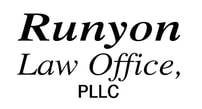Ask the Right Questions
Here’s what I mean. Let’s say you’re on the board of a private school or day care center. Will the organization’s D&O policy cover you if suit is filed against the board because one of the teachers or caregivers molested a student or child, or sexually assaulted or harassed another employee? Will the policy cover you if the board is sued because the business manager filed fraudulent tax returns to cover up a history of misappropriating the organization’s funds - and will it keep you from having to make good personally on those obligations? Also, will the board have coverage if one of those employees is terminated and then files suit for wrongful termination? And if you’re sued personally - it happens frequently in these cases - will the policy provide you with legal representation and pay the fees – because we all know how expensive lawyers can be, right, even if we win?
Needless to say, there’s almost no chance that the person you pose these questions to will have the answers. Don’t let that deter you, though, and don’t settle for a squishy response that doesn’t really give you the information you need. No, I suggest you ask for a written explanation of coverage from the agent or carrier of the organization’s D&O policy – as I did when I asked Tim McMahon of the Bellows-Nichols Agency about all this. You’ll probably be doing the rest of the board a great service at the same time. Then, if you get the right answers, you’ll be good to go; you’ll have immediate cred for insightful brilliance; and you can serve with distinction and peace of mind. But if you don’t hear enough to put you at ease, either the organization can do something about it for the whole board’s benefit, or you can make your mark elsewhere. Either way, you’ll be ahead of the game.
Posted 10/31/2016 Misc.
